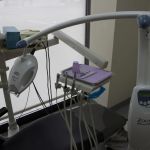The Best Dental X-Ray Machines for Clinics: A Complete Guide
- 1. Understanding Dental X-Ray Machines
- 2. Why Dental X-Ray Machines Are Crucial for Clinics
- 3. Key Features to Consider When Buying a Dental X-Ray Machine
- 4. Types of Dental X-Ray Machines
- 5. Top Dental X-Ray Machines for Clinics
- 6. How to Maintain Your Dental X-Ray Machine
- 7. Where to Buy the Best Dental X-Ray Machines
1. Understanding Dental X-Ray Machines
A dental X-ray machine is an essential diagnostic tool that helps dental professionals detect and diagnose problems beneath the surface of the teeth and gums. By using high-frequency electromagnetic radiation, the machine creates detailed images of a patient’s mouth. These images, or X-rays, allow dentists to identify cavities, gum disease, infections, and even the condition of the bone supporting the teeth. Without X-rays, some dental issues may go undetected until they have progressed significantly, leading to more invasive and costly treatments. Understanding how dental X-ray machines work and why they are crucial to dental care is essential for both patients and dental practitioners.
2. Why Dental X-Ray Machines Are Crucial for Clinics
Dental X-ray machines are crucial for clinics because they provide a non-invasive way to gain insights into the health of a patient’s teeth and jaw. They help dentists make accurate diagnoses, plan treatments, and monitor ongoing oral health issues. Some of the primary reasons why dental X-rays are important include:
- Early Detection: X-rays allow dentists to detect problems early, such as cavities between teeth, impacted teeth, and bone loss, often before they are visible to the naked eye.
- Preventive Care: By identifying issues early, X-rays contribute to preventive care, potentially saving patients from more severe conditions like tooth decay or gum disease that could lead to tooth loss.
- Accurate Treatment Planning: X-ray images provide detailed information that helps in planning treatments like root canals, tooth extractions, braces, and implants.
- Monitoring Progress: X-rays are also used to monitor the progress of treatments, such as orthodontic work or the healing of an extraction site.
3. Key Features to Consider When Buying a Dental X-Ray Machine
Choosing the right dental X-ray machine is a crucial decision for any dental clinic. The machine must fit the clinic’s specific needs while providing clear and detailed images. Here are key features to consider:
- Image Quality: The most important factor when purchasing a dental X-ray machine is the quality of the images it produces. High-resolution images are essential for accurate diagnosis and treatment planning.
- Size and Portability: Some clinics prefer compact or portable X-ray machines, especially those that need to take X-rays in various treatment rooms or mobile setups.
- Safety Features: Modern X-ray machines come with built-in safety features like lead shielding, dose control, and radiation protection, which help minimize the exposure of both patients and dental professionals.
- Ease of Use: The machine should be easy to operate, with user-friendly controls and settings. Dental staff should be able to quickly set up and take X-rays without confusion.
- Cost and Warranty: Dental X-ray machines can be a significant investment. It is important to balance the cost of the machine with its long-term benefits. Additionally, inquire about warranty coverage and available maintenance services.
4. Types of Dental X-Ray Machines
There are several types of dental X-ray machines, each designed to cater to specific needs within a clinic. Here are the main types:
- Intraoral X-ray Machines: These are the most common type of X-ray machines used in dental clinics. They take X-rays from inside the patient’s mouth. There are three main types of intraoral X-rays: periapical, bitewing, and occlusal X-rays.
- Extraoral X-ray Machines: Extraoral machines capture X-ray images from outside the mouth, typically using a larger plate to capture an image of the entire jaw or skull. They are often used for panoramic X-rays and more detailed imaging.
- Digital X-ray Machines: Digital X-rays use electronic sensors instead of traditional X-ray film. These provide faster, higher-quality images with less radiation exposure compared to conventional X-ray machines. Many clinics are switching to digital systems due to their convenience and environmental benefits.
5. Top Dental X-Ray Machines for Clinics
Choosing the best dental X-ray machine for your clinic depends on the type of care you provide and your budget. Here are some of the top models available today:
- Carestream CS 8100: A popular choice for dental clinics, this digital panoramic X-ray machine offers high-quality images and is easy to use. It is compact and has advanced imaging software for precise diagnostics.
- Planmeca ProMax 3D: This machine combines 3D imaging and traditional 2D X-rays for comprehensive dental care. It is particularly useful for implant planning and orthodontic analysis.
- Sirona Orthophos SL: Known for its crystal-clear image quality, this model offers advanced features such as low radiation exposure and a wide range of image options for dental professionals.
- Vatech PaX-i3D: This versatile X-ray machine combines 2D and 3D imaging and is ideal for orthodontic and implant treatments. Its compact design is perfect for smaller clinics with limited space.
6. How to Maintain Your Dental X-Ray Machine
Proper maintenance of your dental X-ray machine is essential to ensure its longevity and consistent performance. Here are some maintenance tips:
- Regular Calibration: Ensure that your X-ray machine is regularly calibrated to maintain accurate image quality and to reduce the risk of errors in diagnosis.
- Check for Wear and Tear: Periodically inspect the machine for any signs of wear and tear, especially in the cables and sensors, to prevent malfunction.
- Clean the Equipment: Regularly clean the machine, including the sensors and the X-ray head, to prevent dust buildup and to ensure optimal functioning.
- Service and Repairs: Schedule professional servicing and repairs for your X-ray machine at regular intervals to keep it operating smoothly and to avoid costly repairs in the future.
7. Where to Buy the Best Dental X-Ray Machines
Finding the right dental X-ray machine for your clinic requires careful consideration. To purchase the best dental X-ray machines, consider reputable suppliers such as Dentistry Toothtruth, which offers a wide selection of high-quality, reliable X-ray machines suitable for clinics of all sizes. Their expert guidance and customer support can help you find the perfect model to meet your clinic’s needs and budget.







 CE Solano D.M.D. Oral & Maxillofacial Surgery3.0 (303 review)
CE Solano D.M.D. Oral & Maxillofacial Surgery3.0 (303 review) Kanning Orthodontics0.0 (0 review)
Kanning Orthodontics0.0 (0 review) Rush Family Dental5.0 (161 review)
Rush Family Dental5.0 (161 review) Sure Smile4.0 (58 review)
Sure Smile4.0 (58 review) Michael E Krone & Associates5.0 (39 review)
Michael E Krone & Associates5.0 (39 review) Dental Restorative Group - Belmont4.0 (9 review)
Dental Restorative Group - Belmont4.0 (9 review) The Importance of Oral Health Education During Pregnancy for a Healthy Pregnancy
The Importance of Oral Health Education During Pregnancy for a Healthy Pregnancy Best Tips for Brushing Your Teeth Properly for Healthy Gums: Essential Techniques for Oral Health
Best Tips for Brushing Your Teeth Properly for Healthy Gums: Essential Techniques for Oral Health Why Skipping Dental Checkups Can Lead to Bigger Oral Health Problems
Why Skipping Dental Checkups Can Lead to Bigger Oral Health Problems Advantages of Porcelain Dental Restorations
Advantages of Porcelain Dental Restorations How Can Diabetes Cause Tooth and Gum Problems? Preventing and Managing Oral Health Issues
How Can Diabetes Cause Tooth and Gum Problems? Preventing and Managing Oral Health Issues Healthy Habits for Promoting Good Oral Health and Hygiene: Tips for a Healthy Smile
Healthy Habits for Promoting Good Oral Health and Hygiene: Tips for a Healthy Smile